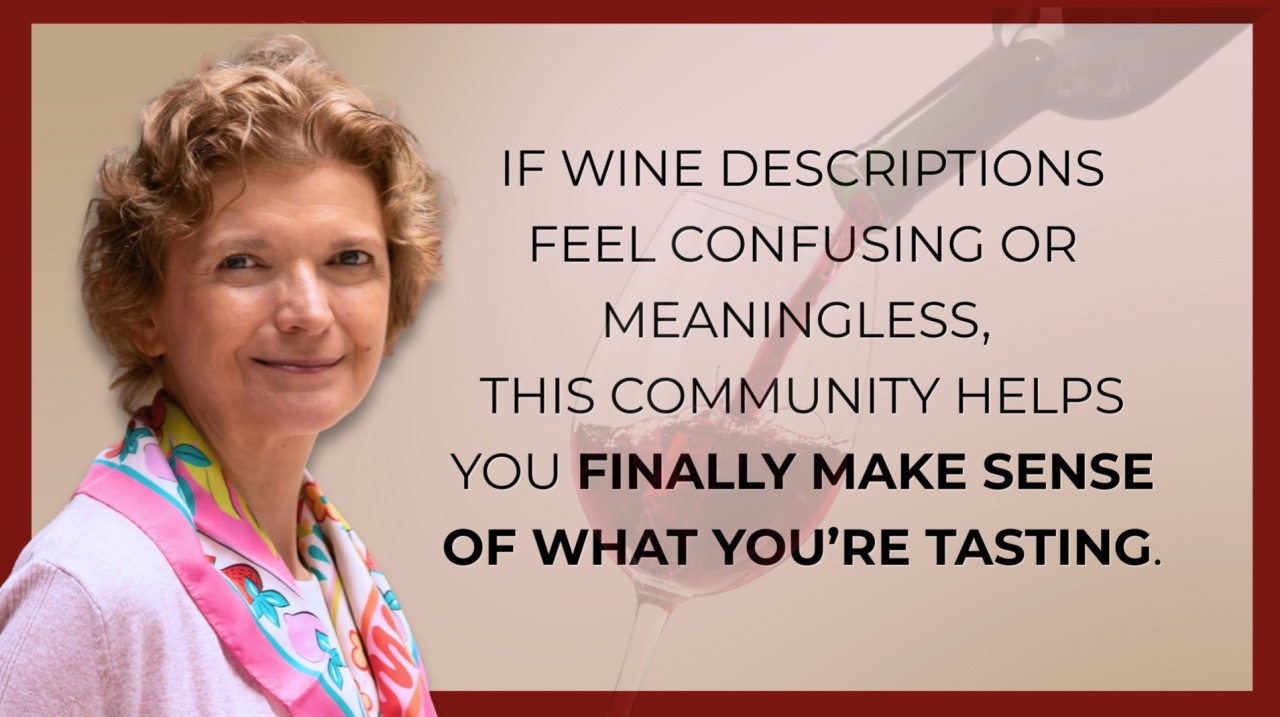The 3 reasons why you can smell a sweet aroma in wine

We taste sweetness but can we smell a sweet aroma in wine? Let’s explore why it’s possible.
Published: July 21, 2021
Am I too picky of an academic when I say, “no, you can’t smell a sweet aroma”? But that’s what you smell in this glass of wine. Why is that?
Many products around us are described as having a sweet aroma: essential oil diffusers, tomato varieties, herbs and flowers, fine fragrances. Why not fine wines?
I tend to correct my students when they describe an aroma as sweet, sour, or bitter.
Technically, we taste sweetness with our taste buds located on the tongue. We also detect on our tongue the other four basic tastes, sour, bitter, salty, and umami.
We smell aromatic compounds that evoke particular aromas, that are pleasing or not, discernable or not, memorable or not.
So what is it that makes us use terms such as “sweet aroma” when describing a glass of wine?
I see 3 possible explanations.
Sweet may refer to a pleasing sensation.
Harold McGee, in his book Nose Dive [1, p. 147], mentioned that “many of the plant volatiles we’ll get to know have a pleasant, soothing quality that will be named with the descriptor sweet.”
On the contrary, animal odors may not be so pleasing.
We also use the descriptor sweet to describe other pleasant sensations, things, or people: for example, a sweet soothing sound, or a sweet cottage, or a sweet child. And many people call their loved ones Honey or Sweetie.
Therefore, the sweet aroma you may perceive in wine is likely pleasing and reminiscent of a product you enjoy.
Some sugars have a smell.
Non-refined sugars may have an odor. If you smell a jar containing cane sugar or sugar crystals, you may detect an aroma. Volatile compounds remaining from the sugar canes or sugar beets are still present, bound to particulates extracted in more refined sugar. Technically, you’re not smelling sweetness but aromas from these “impurities.”
So, you may smell an aroma reminiscent of non-refined sugar.
We describe what we smell by analogy to what we know.
As I wrote many times, our aroma vocabulary is relatively poor. It’s difficult to describe what we perceive when smelling a glass of wine without some training.
The volatile compounds you detect in a glass of wine are also found in other products. The characteristic aroma of strawberries is evoked by aromatic compounds also found in wine.
That’s why we describe wine aromas by the analogy of products we are familiar with that we have encountered many times before. And we struggle naming scents we have never smelled before.
Therefore, when you smell a sweet aroma, you smell an aroma of a product that likely has a sweet taste and an aromatic component that you try to describe.
The obvious example would be caramel, a fruit jam, or spice used in confectionery or baking.
How to go beyond the sweet aroma description?
So you smell a sweet aroma in a glass of wine.
Let’s try to decompose what it is.
- Use the Wine Aroma Wheel and explore the middle section categories.
- It will guide you in identifying where the sensation belongs:
- Is it Fruity, Floral, Caramel, Spicy, or Woody?
- Maybe you visualize the product’s color:
- Is it red, brown, yellow, etc.?
- You may not go to the next level of description, and it’s okay. Your ability to be more specific will develop by training your nose to smell many different “sweet” products.
Let’s recap what a sweet aroma in wine might be.
Although you can’t technically smell sweetness, you smell some aromatic compounds reminding you of the pleasant aroma of a familiar product.
- This product has a sweet taste plus this other component that you try to describe.
- Use tools such as the Wine Aroma Wheel to guide you through your evaluation.
- And continue to train your nose every day, focusing on aromatic and sweet products.
Interested in training your nose?
Contact me [using this form] to learn about upcoming opportunities.
Categories: : wine aroma wheel, Tasting education, Wine Language
Download your Free Resources

Unlock your senses | The Sensory Approach to Wine Tasting
Templates, audio guide to carry out a sensory training

Join Curious Palates, a FREE Community and open training space to develop your wine palate with sensory training

Isabelle Lesschaeve, PhD
Blog author, Wine Sensory Scientist and Wine Tasting Coach
Internationally renowned wine sensory scientist, Isabelle demystifies wine tasting and helps serious wine lovers improve their senses of smell and taste to sharpen their tasting skills and tasting notes.
InnoVinum LLC is a participant in the Amazon Services LLC Associates Program, an affiliate advertising program designed to provide means for sites to earn advertising fees through advertising and linking to amazon.com.
 Isabelle Lesschaeve
Isabelle Lesschaeve 